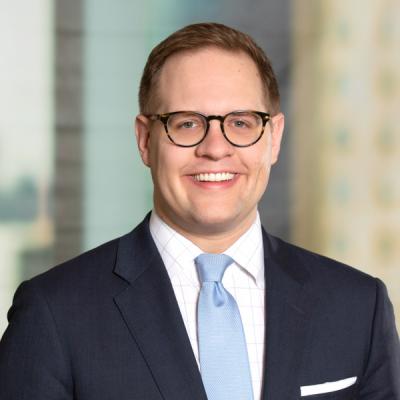Paid Sick Leave Arrives for New York State Employers & New York City Amends Its Own Paid Sick Leave Law
The New York State Paid Sick Leave Law’s accrual provisions go into effect today, September 30, 2020. In April, Governor Cuomo signed into law new permanent paid sick leave requirements for all New York State employers (separate from COVID-19 leave which was passed in March and went into effect immediately). Employees may begin using sick and safe leave for purposes consistent with the law on January 1, 2021. Although we expect the New York State Department of Labor to issue guidance or regulations on the new law, the agency has not done so to date. We will continue to monitor for any updates.
Meanwhile, the New York City Council swiftly passed an updated Sick and Safe Time law to align the City’s law more closely with the New York State sick leave law. But there are some important differences with the State’s sick leave law.
Our full analysis of New York State’s new paid sick leave law can be found here. More information on the City’s updated sick leave law, which also went into effect today, is addressed further below.
Summary of New York City Leave Amendments
On September 28, 2020, Mayor De Blasio signed into law amendments to the City’s paid sick leave law which took effect today, September 30, 2020. The NYC amendments generally seek to align the pre-existing City leave law with the recently enacted State leave law, including by aligning the accrual and usage purposes, by expanding the amount of sick and safe leave employers with 100+ employees must provide from 40 hours to 56 hours annually, and by requiring some smaller employers (4 or fewer employees) to provide paid leave to employees if the employer had a net income of $1 million or more in the previous tax year. Note that NYC employers that are now subject to expanded leave obligations under the State leave law still have until January 1, 2021 to institute these expanded benefits.
There are also several important changes of which employers should take note:
Immediate Pay Statement & Notice Requirements
- NYC employers are now required to note on employees’ pay statements (or via another written communication each pay period):
- (i) the amount of sick and safe time accrued and used during the pay period; and
- (ii) employees’ total balance of accrued sick and safe time.
- Employers have 30 days from the law’s September 30th effective date (until October 30th) to notify employees of the changes in the law, and must continue to provide new employees with a notice of rights upon commencement of employment.
No More 80-Hour Threshold for Work in NYC
- The new amendments remove the previous requirement that employees work 80 hours within NYC as a threshold for sick and safe time eligibility, expanding the law’s coverage.
Employers Now Responsible for Reimbursing Employees for Documentation Fees
- Where employers require employees to submit medical documentation (after three consecutive days of sick and safe leave use), the new amendments require employers to reimburse employees for any fees associated with obtaining that documentation (e.g., fees charged by medical providers).
Expanded List of Domestic Workers Now Aligned with Regular Employee Rights
- The amendments expand the definition of “domestic worker” (now any “person who provides care for a child, companionship for a sick, convalescing or elderly person, housekeeping, or any other domestic service in a home or residence”) and eliminates distinctions between the rights of domestic workers and regular employees. Any employer who employs even one domestic worker is subject to the law’s sick leave requirements.
Expanded Retaliation Provisions
- The new amendments expand the list of retaliatory actions prohibited by the law, including specific language prohibiting employers from maintaining any absence control policy that counts protected sick and safe time leave as an “absence” that could result in disciplinary measures.
- The new amendments also clarify that the law’s anti-retaliation provisions are implicated when an employee’s protected activity (e.g., using leave under the law) is a motivating factor for an adverse employment action, even if other factors may also contribute to the decision.
Enforcement Changes
- Under the amended law, the City may now bring “pattern or practice” enforcement actions with expanded capabilities, including new subpoena and investigative powers. An employer found to have engaged in a “pattern or practice” of non-compliance could be subject to a maximum penalty of $15,000, with the potential for an extra $500 in damages for each employee who was not permitted to utilize safe and sick leave pursuant to the law.
- Further, the amendments also clarify that the City may apply penalties to non-compliant employers for each employee, which may exponentially increase potential damages.
Parting Thoughts
New York employers that have not done so already should review and update their sick leave programs and policies to ensure compliance with these sick leave laws, consider how they will communicate these changes to employees, coordinate implementation efforts with their payroll provider and/or leave administrator, and update recordkeeping practices. NYC employers should also ensure that pay statements and payroll systems reflect the new accrual, use, and balance requirements listed above for each pay period, and that employees are given notice of these new changes to the law within 30 days. The Mintz Employment, Labor & Benefits group is standing by to assist.



